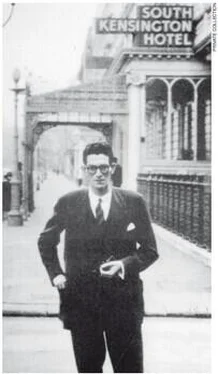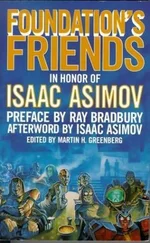Ben Macintyre - A Spy Among Friends
Здесь есть возможность читать онлайн «Ben Macintyre - A Spy Among Friends» весь текст электронной книги совершенно бесплатно (целиком полную версию без сокращений). В некоторых случаях можно слушать аудио, скачать через торрент в формате fb2 и присутствует краткое содержание. Год выпуска: 2014, ISBN: 2014, Издательство: Bloomsbury Publishing, Жанр: Старинная литература, на английском языке. Описание произведения, (предисловие) а так же отзывы посетителей доступны на портале библиотеки ЛибКат.
- Название:A Spy Among Friends
- Автор:
- Издательство:Bloomsbury Publishing
- Жанр:
- Год:2014
- ISBN:9781408851746
- Рейтинг книги:5 / 5. Голосов: 1
-
Избранное:Добавить в избранное
- Отзывы:
-
Ваша оценка:
- 100
- 1
- 2
- 3
- 4
- 5
A Spy Among Friends: краткое содержание, описание и аннотация
Предлагаем к чтению аннотацию, описание, краткое содержание или предисловие (зависит от того, что написал сам автор книги «A Spy Among Friends»). Если вы не нашли необходимую информацию о книге — напишите в комментариях, мы постараемся отыскать её.
A Spy Among Friends — читать онлайн бесплатно полную книгу (весь текст) целиком
Ниже представлен текст книги, разбитый по страницам. Система сохранения места последней прочитанной страницы, позволяет с удобством читать онлайн бесплатно книгу «A Spy Among Friends», без необходимости каждый раз заново искать на чём Вы остановились. Поставьте закладку, и сможете в любой момент перейти на страницу, на которой закончили чтение.
Интервал:
Закладка:
Britain and the USSR had been allies ever since Hitler’s attack on the Soviet Union in the summer of 1941. Philby could argue that, by passing on information to Moscow, he was simply helping an ally and supporting the ‘single-front struggle against fascism’. His colleagues in MI6 and OSS would not have seen matters that way. Some high-grade intelligence was already passing between London and Moscow, but in restricted form, for both sides continued to view one another with deep suspicion. Philby was passing on secrets that his bosses in MI6 would never have dreamed of sharing with Stalin: deception operations, the identities of agents and officers, and a detailed (and damning) picture of the very structure of the secret service itself. There was also the danger – never confirmed or disproved – that German spies had penetrated Soviet intelligence, and information supplied by the Cambridge network was passing back to Berlin. If that possibility crossed Philby’s mind, it does not seem to have worried him. His loyalty was to Moscow; what Moscow did with the information he provided was not his concern. He knew he was committing treason by spying for a foreign power, and the implications of doing so. If caught, he would almost certainly be prosecuted under the Treachery Act of 1940, which carried the death penalty.
Death was part of the game. Philby had accepted the liquidation of his much-loved Soviet handlers with the acquiescence of a true believer. More than a dozen spies intercepted through the Bletchley Park decrypts had ended their lives on the gallows or in front of a firing squad. British intelligence was not above ‘bumping off’ enemy spies, to use the cheery euphemism favoured by MI6. Philby would later claim that he had done his ‘modest bit towards helping to win the war’, by killing large numbers of Germans. He saw himself as a combatant, albeit one who fought from behind a desk, with all the risks that war involves. But as the war headed to its climax, Philby’s espionage career was about to enter a new and much more lethal phase, in which he would help to destroy not Nazi spies, but ordinary men and women whose only crime was to oppose the political creed he had espoused. Philby would soon kill for the communist cause and Nicholas Elliott, unwittingly, would help him.
*
Elliott’s principal adversary in the Istanbul spy battle was a tall, bald, bespectacled, urbane and probably homosexual lawyer named Paul Leverkühn. Plucked from his comfortable legal practice in Lübeck to be the Abwehr chief in Turkey, Leverkühn was an unlikely spymaster. He had studied law at Edinburgh University, and worked in New York and Washington. ‘Moody and nervous’, he disliked Turkey and, like many Abwehr officers, had little time for the brutality and vulgarity of Nazism. He looked more like an academic than a spy. But he was a first-class espionage operative and, as Elliott was discovering, a worthy enemy with a formidable spy network, employing German expatriates and Turkish informants, as well as Russian thugs, Persian hitmen, Arab informants and even an Egyptian prince. ‘The city is riddled with their agents,’ warned an OSS report. Germany had broken Turkey’s diplomatic codes early in the war. Leverkühn’s spies, tipsters and honey traps could be found wherever secrets might be gleaned. Hildegard Reilly, the attractive German widow of an American officer, haunted Taksim’s, where she ‘specialised in making Britons and Americans more talkative’. Wilhelmina Vargasy, a blonde, blue-eyed Hungarian, prowled Ellie’s bar, and was said to have seduced no less than six Allied soldiers. Leverkühn ran agents into the Middle East, gathering information on Allied military forces in Palestine, Jordan, Egypt and Iraq, and infiltrated spies into the Soviet Union to foment revolution against Moscow – just as the CIA and MI6 would seek to do after the war.
Elliott’s work frequently took him to Ankara where he stayed in the ambassador’s residence as a guest of the Knatchbull-Hugessens. On these occasions, the obliging British ambassador even lent Elliott his personal valet, an Albanian named Elyesa Bazna, to help him dress for dinner. ‘I remembered him vividly,’ wrote Elliott, a ‘small roundish man with a high forehead, thick black hair and a large drooping moustache’. Before joining the domestic staff of the British embassy, Bazna had been a low-level criminal, a servant in the Yugoslav embassy, and valet to a German diplomatic official, who had caught him reading his letters, and fired him. Bazna was also a spy for the Germans.
Sir Hughe Knatchbull-Hugessen had developed the unsafe habit of bringing official papers home to the ambassador’s residence in his dispatch box, and reading them in bed before turning in for the night. Elliott liked the ambassador, but later conceded that he should have been ‘instantly dismissed’ for this flagrant breach of security. Bazna identified the nature of his boss’s bedtime reading, and spotted a money-making opportunity. In October 1943 (at about the time that Elliott first encountered Bazna laying out his dinner jacket) the Albanian valet made contact with German intelligence and offered to hand over photographs of the documents in exchange for cash, lots of it. Over the next two months, Bazna made some ten deliveries of documents and was paid a fortune in cash, which he carefully stashed away, unaware that the Germans had taken the precaution of paying him in forged notes. Since he spoke almost no English, Bazna was ignorant of precisely what secrets he was spilling, but he knew what the word ‘Secret’ meant: reports on British diplomatic efforts to bring Turkey into the war against the Germans, infiltration of Allied personnel into Turkey, and US military aid to the USSR. The Albanian spy – codenamed ‘Cicero’ by the Germans – even furnished accounts of decisions taken by Churchill, Roosevelt and Stalin at the Tehran conference, and the codename of the impending D-Day invasion: ‘Overlord’. The impact of these revelations was limited by German scepticism: having been badly misled by the deception plans covering the Sicily invasion (most famously ‘Operation Mincemeat’, in which a dead body carrying false papers was put ashore in Spain) there were some in the German High Command who suspected that Cicero might be another fiendish British ruse to mislead them at a crucial juncture in the war. The Bletchley Park intercepts, and a spy in the German Foreign Office, eventually alerted the British to the leakage at the British embassy in Ankara. Suspicion swiftly focused on Bazna who, sensing the danger, shut down his espionage operations. He survived the war, and later tried to sue the West German government when he discovered that he had been paid in worthless notes. He gave singing lessons, sold used cars and ended his life working as a doorman at one of Istanbul’s seedier hotels. The Cicero affair was an embarrassing debacle, and further evidence of Germany’s proficient spy network in Turkey. British propaganda later tried to claim that Bazna had been a double agent, but Elliott was under no illusions. ‘The information obtained by Cicero was completely genuine,’ he wrote, and ‘the plain truth is that the Cicero case was probably the most serious diplomatic security leak in British history.’
British intelligence fought back, reinforced in 1943 by the arrival of the OSS. The head of Turkish operations for American intelligence was Lanning ‘Packy’ Macfarland, an extrovert Chicago banker with a taste for trouble and a spy’s wardrobe, including a trench coat and slouch hat: ‘If he had not been a spy, dressed like that he would have had to become one,’ remarked a fellow officer. Aided by British intelligence, Macfarland began setting up his own agent network, starting with a Czech businessman named Alfred Schwartz, codenamed ‘Dogwood’, who claimed to have access to anti-Nazi resistance groups inside Germany, Austria and Hungary. Elliott liked Macfarland, despite his ‘penchant for involving himself in unfortunate escapades’, and established an effective working relationship with the Americans. Together, they successfully introduced a Turkish informant into one of Leverkühn’s sabotage cells. ‘The names of the Azerbaijanis, Persians and Caucasians who work for German intelligence are now known,’ reported OSS officer Cedric Seager, ‘where they congregate of an evening, where they work and what they look like.’
Читать дальшеИнтервал:
Закладка:
Похожие книги на «A Spy Among Friends»
Представляем Вашему вниманию похожие книги на «A Spy Among Friends» списком для выбора. Мы отобрали схожую по названию и смыслу литературу в надежде предоставить читателям больше вариантов отыскать новые, интересные, ещё непрочитанные произведения.
Обсуждение, отзывы о книге «A Spy Among Friends» и просто собственные мнения читателей. Оставьте ваши комментарии, напишите, что Вы думаете о произведении, его смысле или главных героях. Укажите что конкретно понравилось, а что нет, и почему Вы так считаете.












